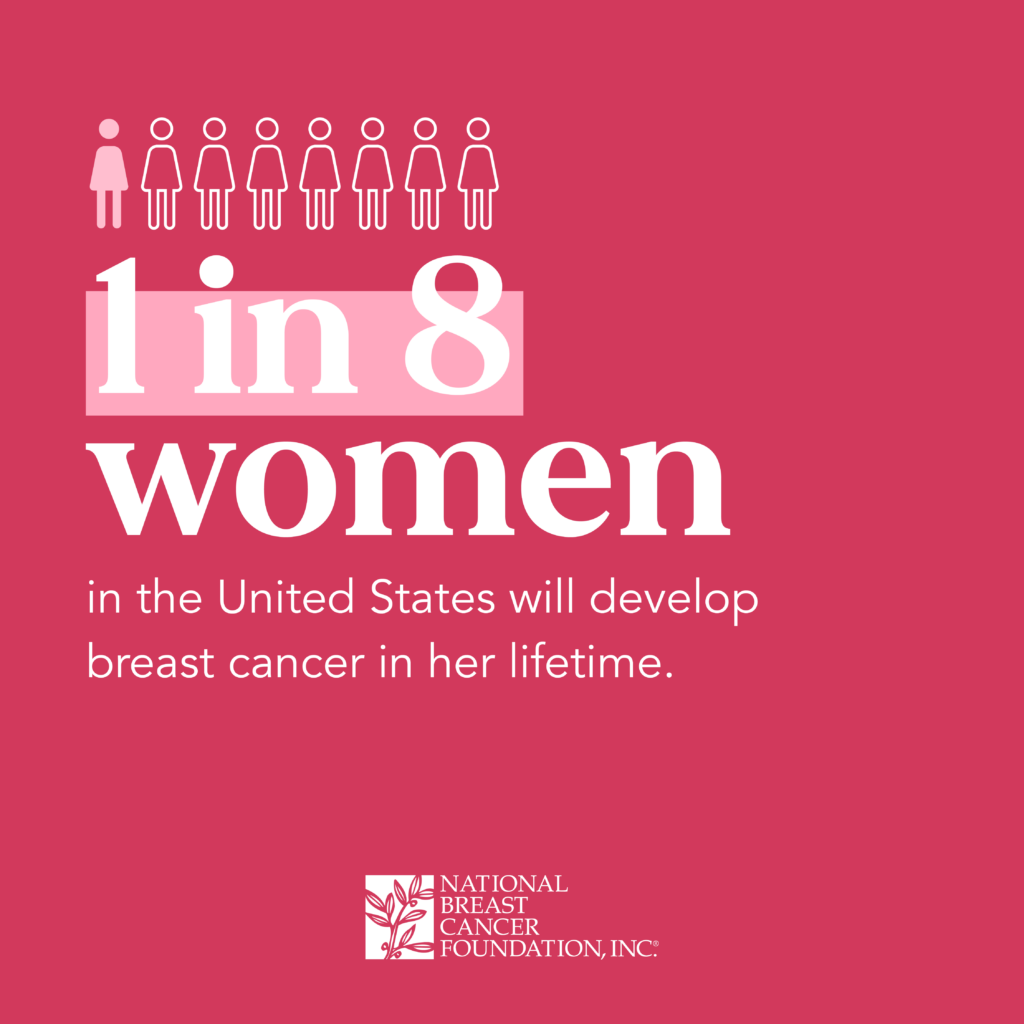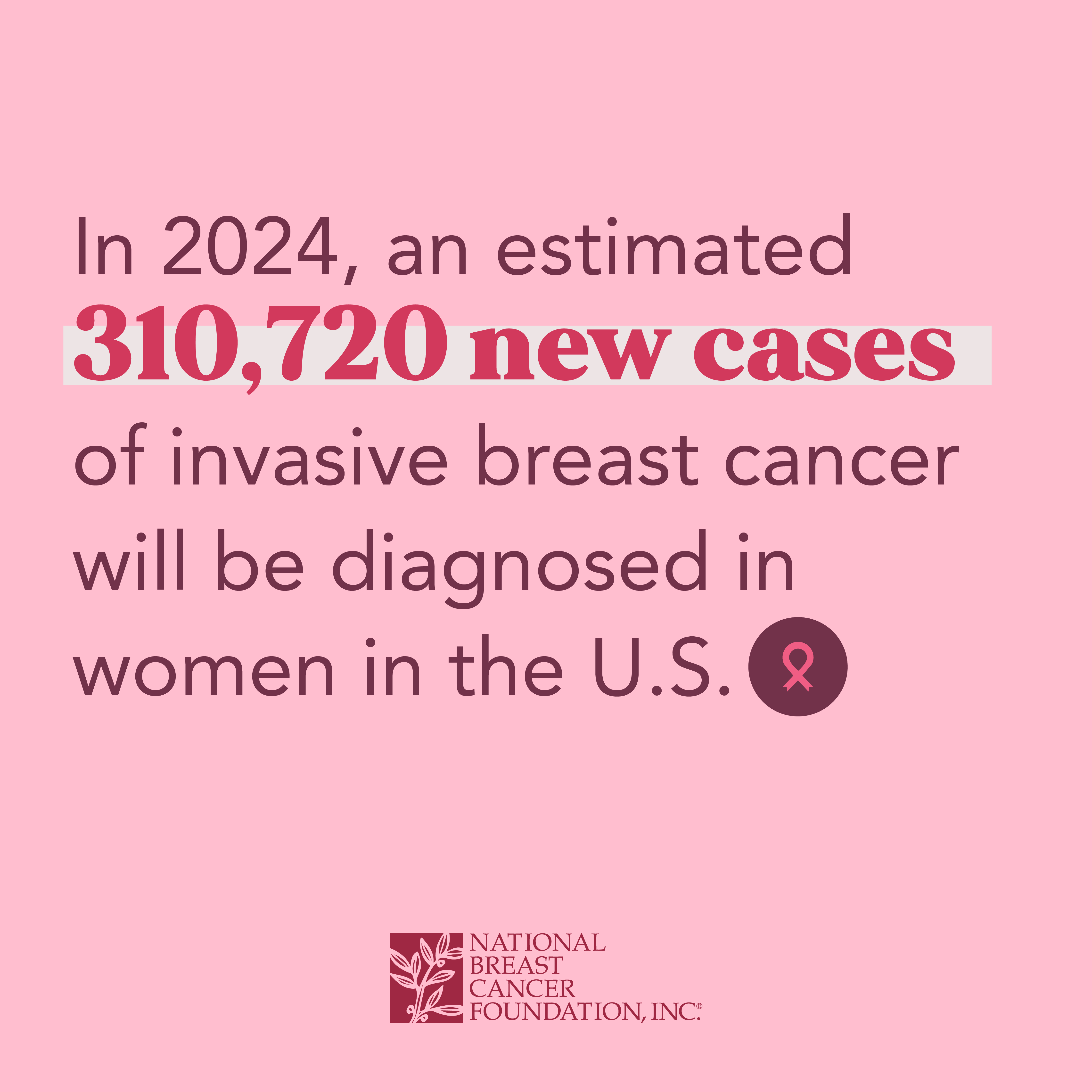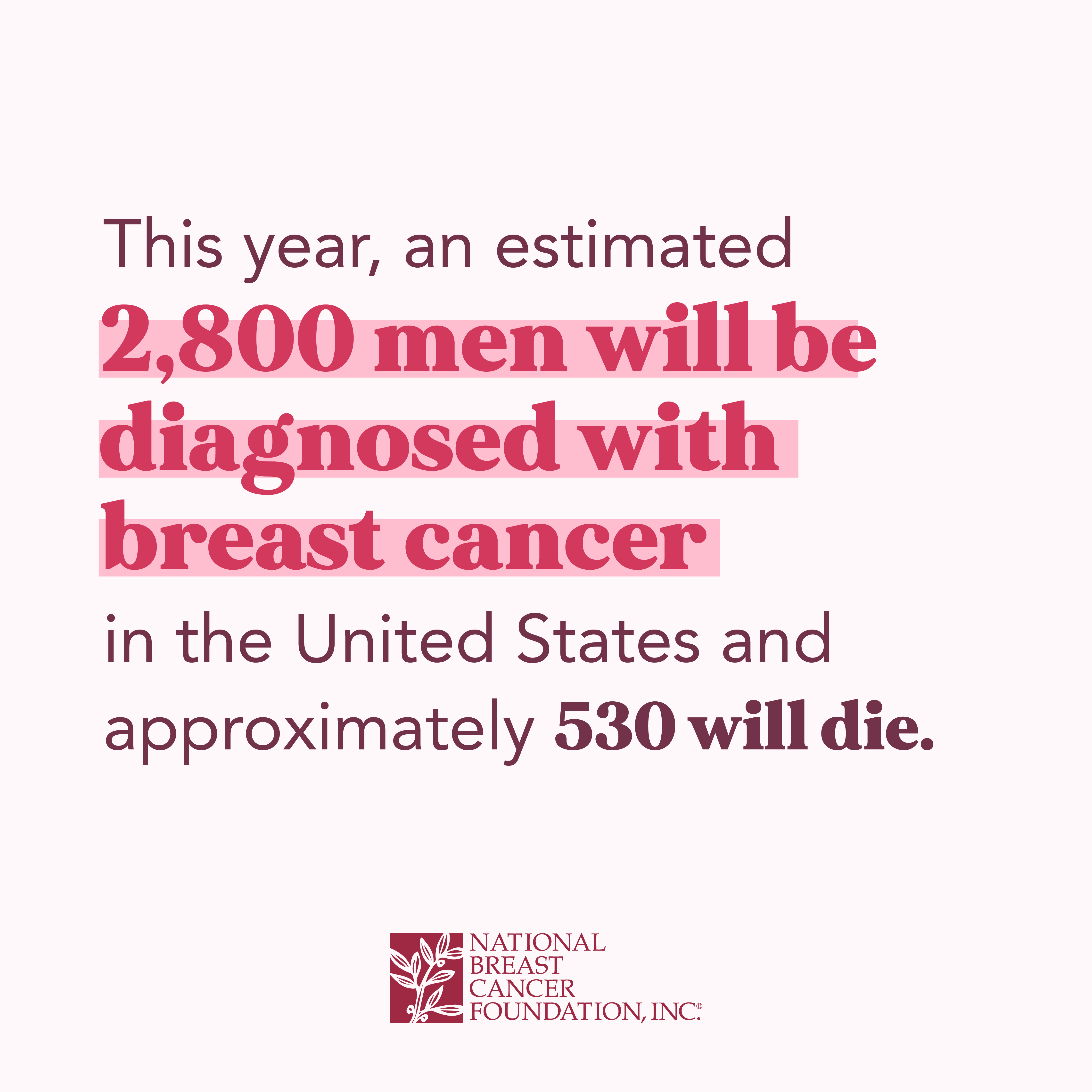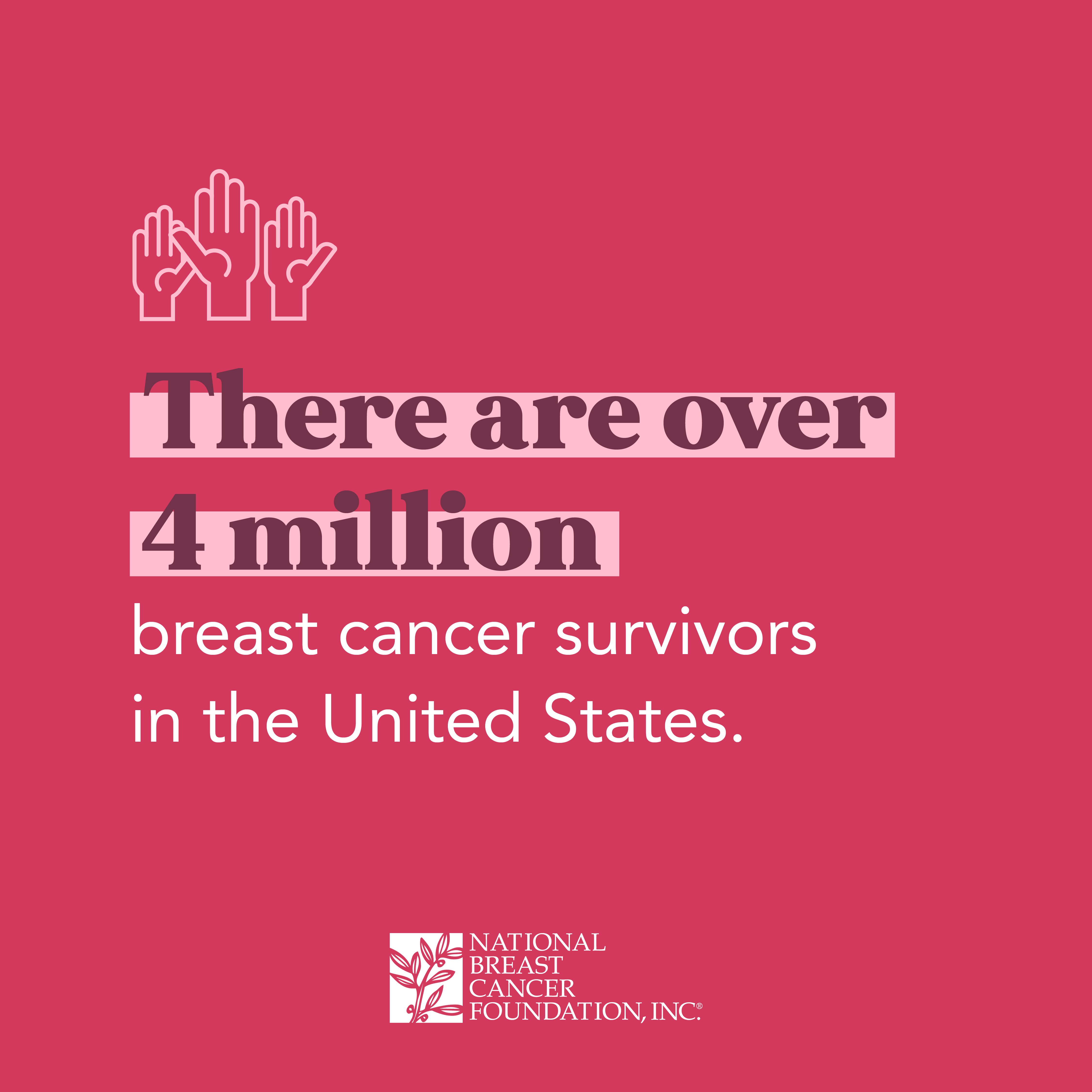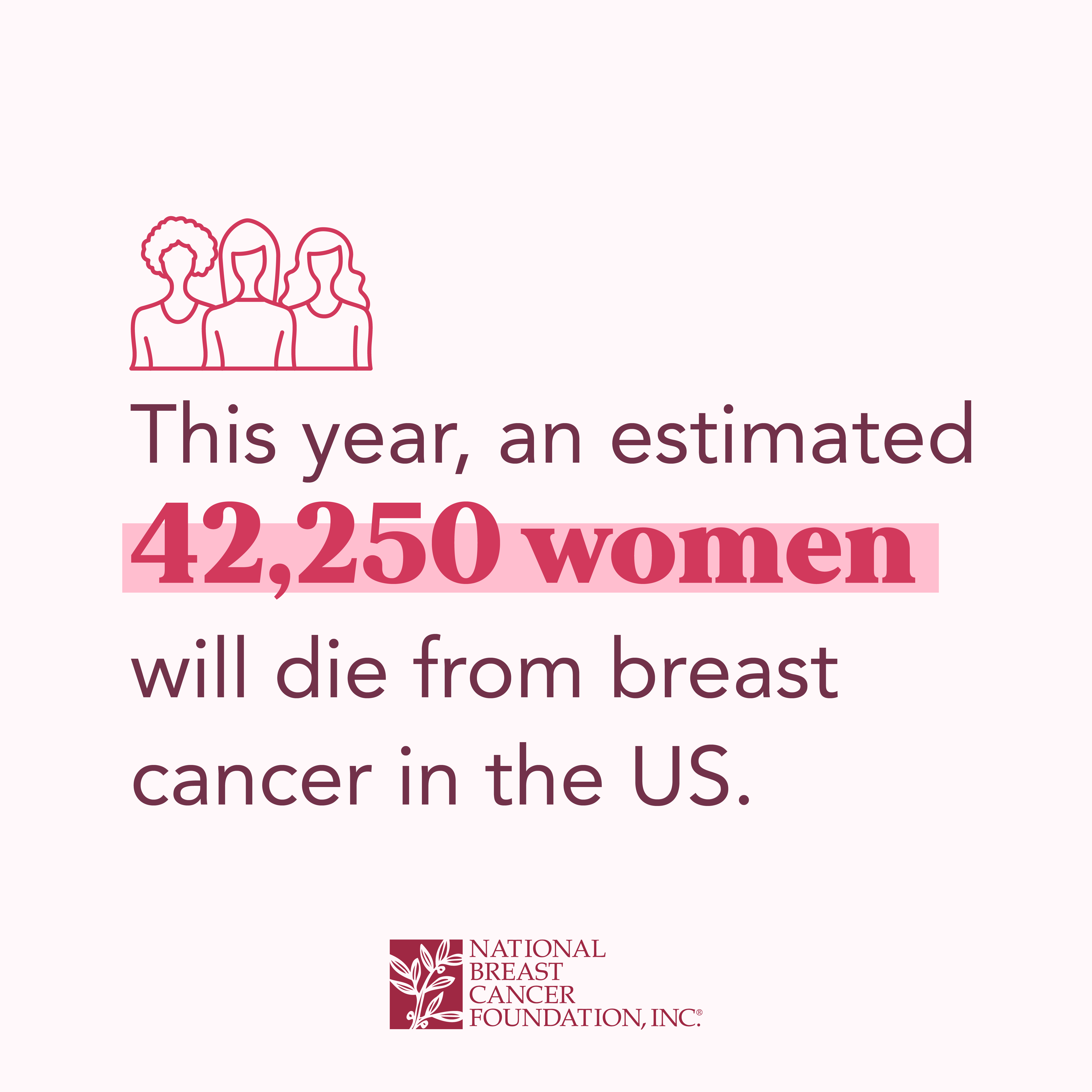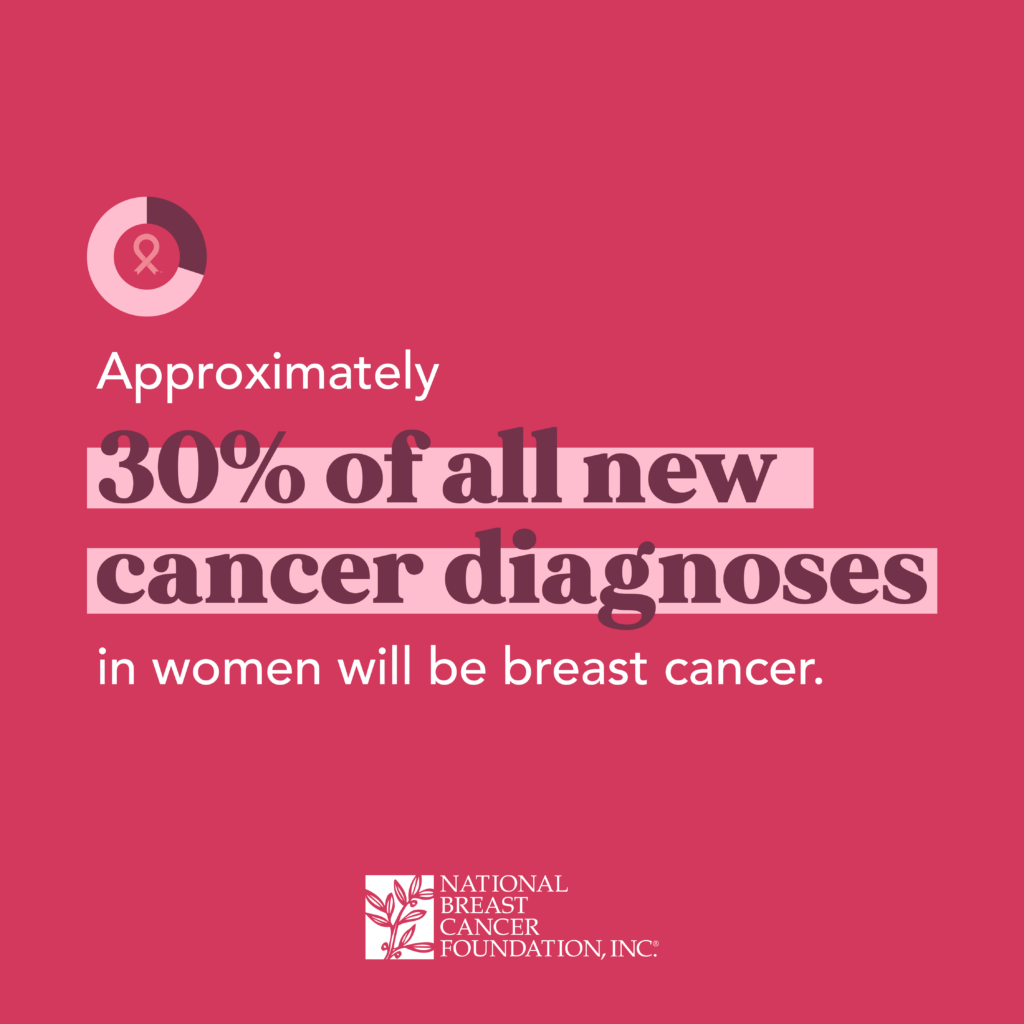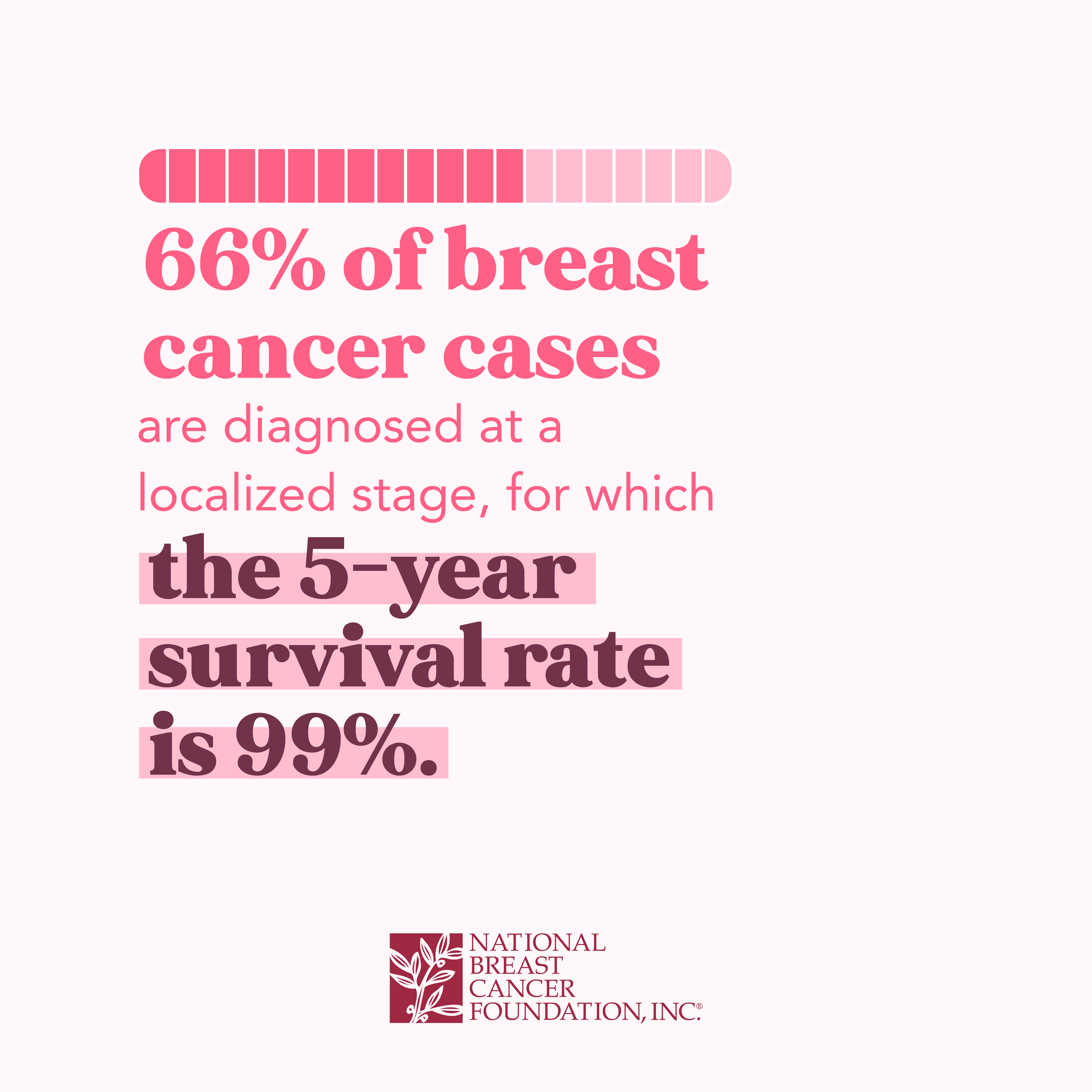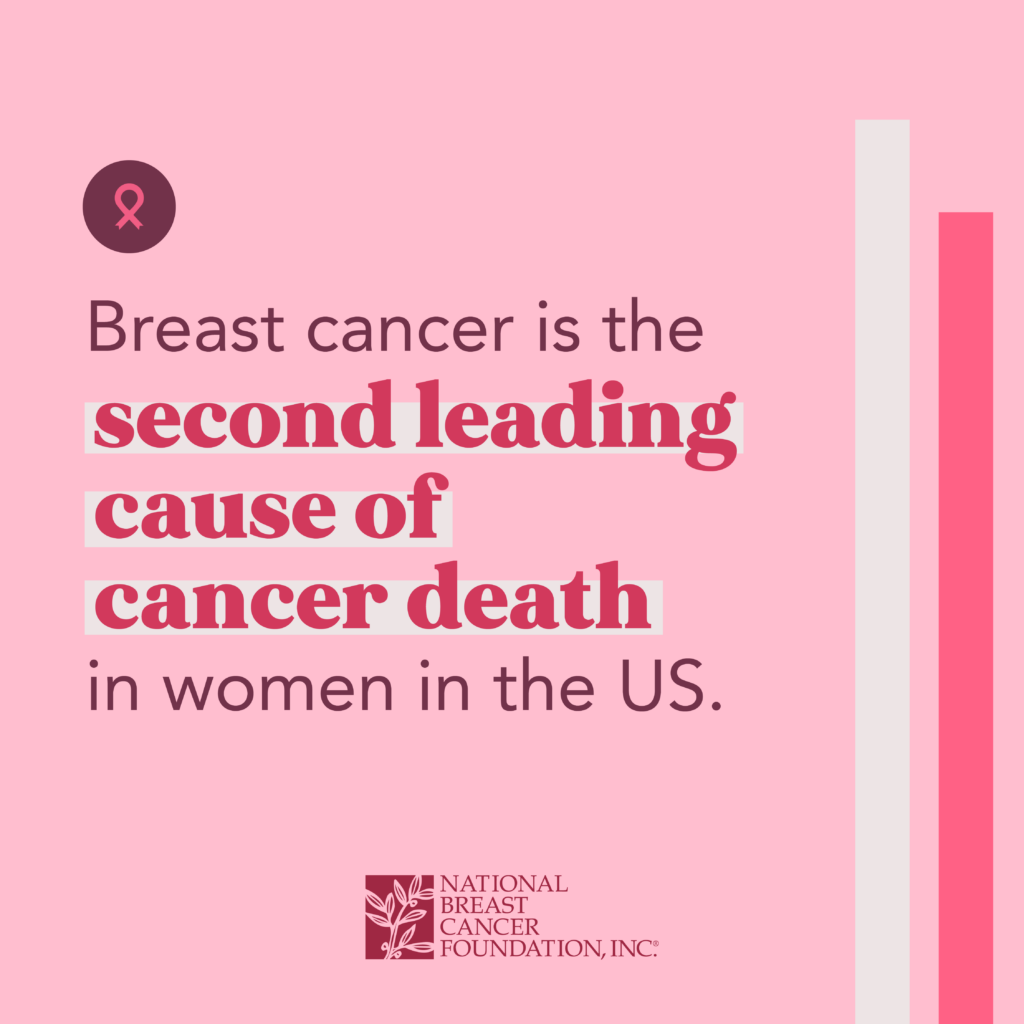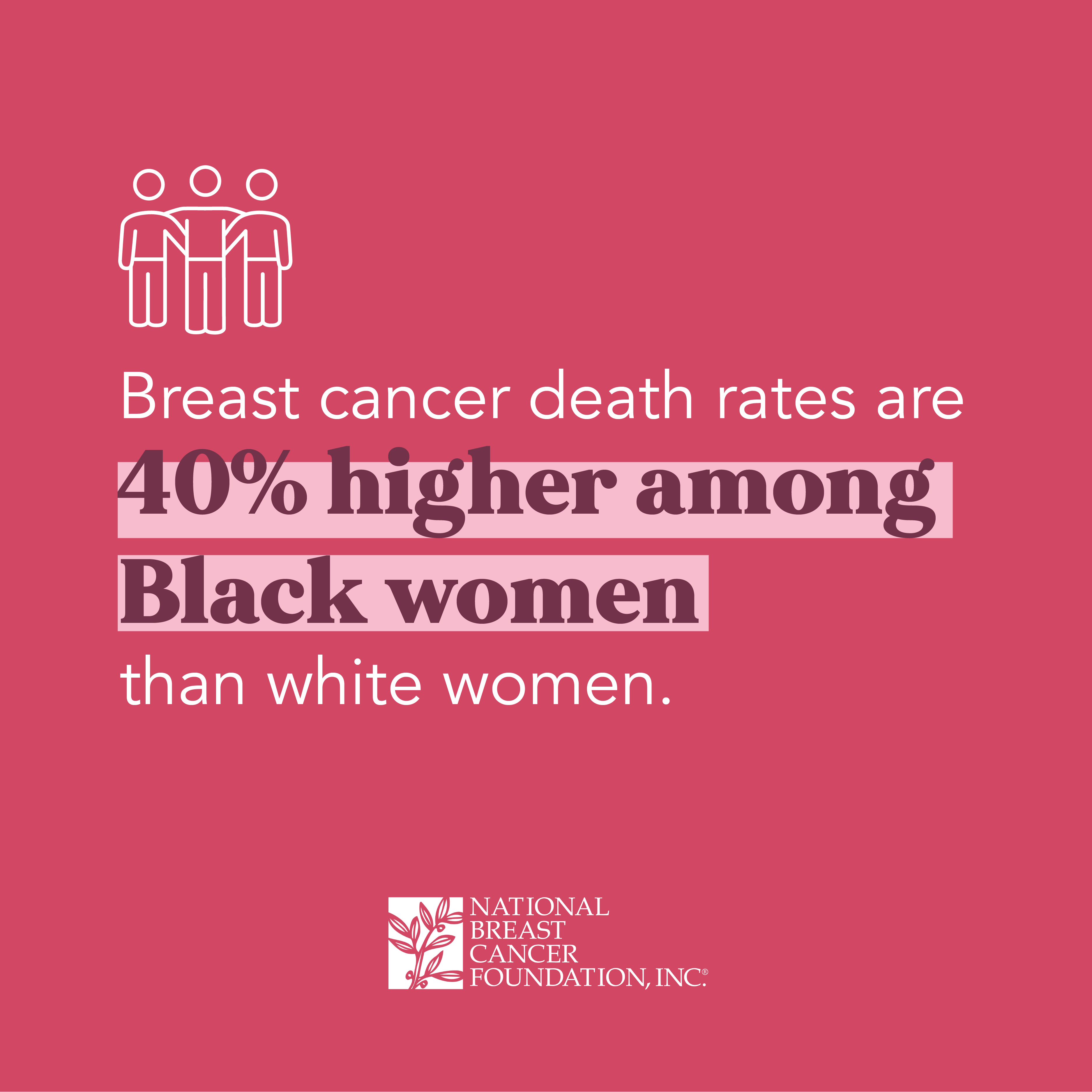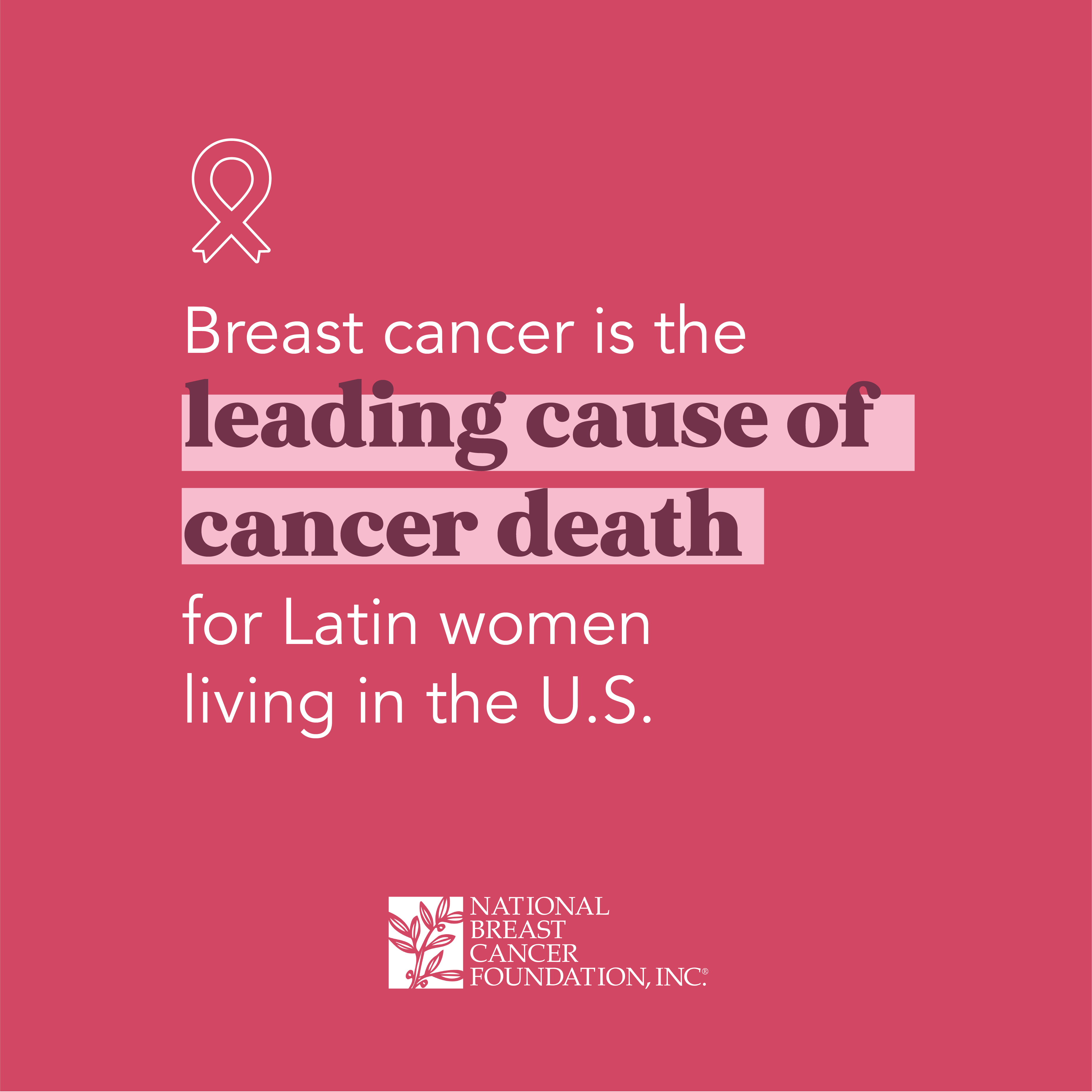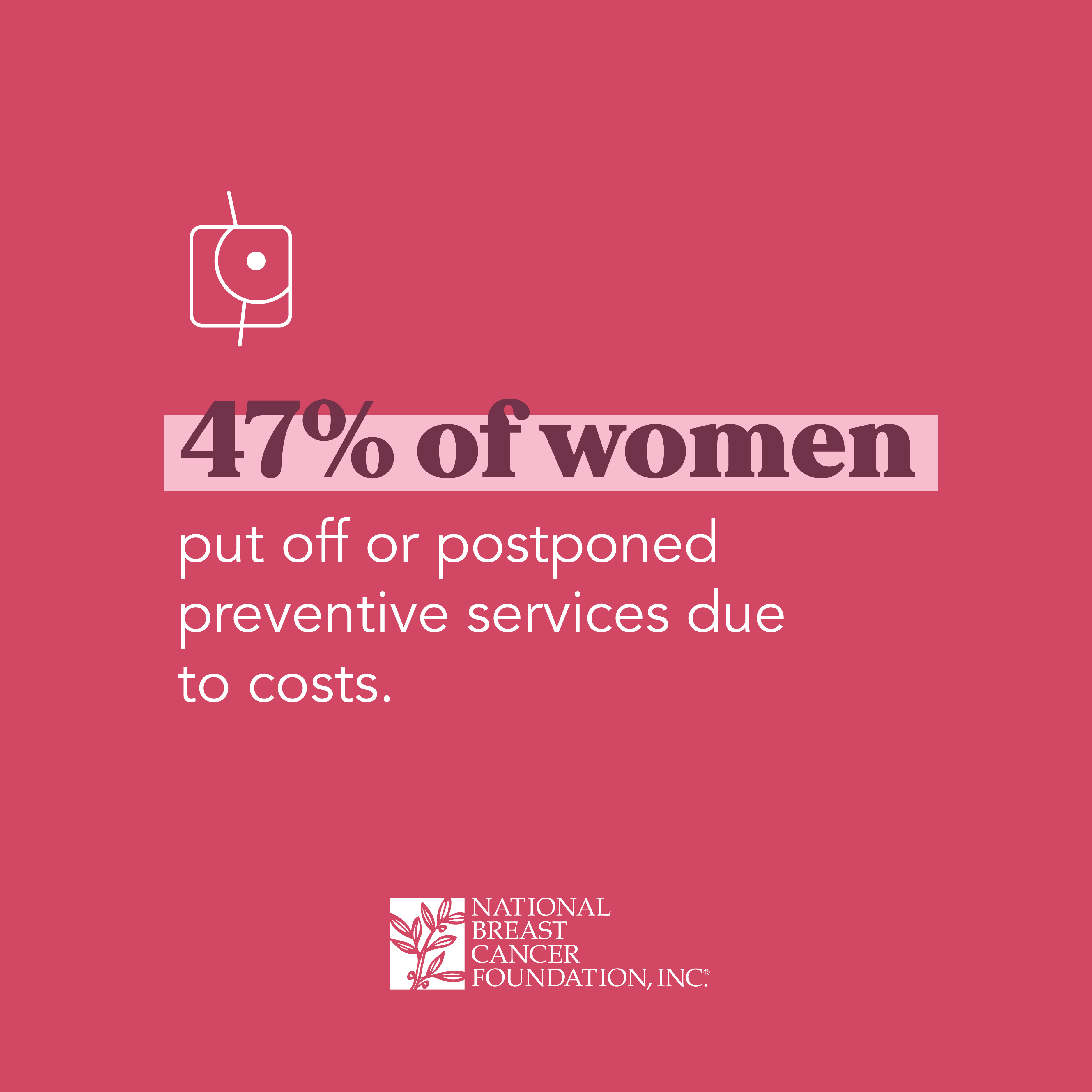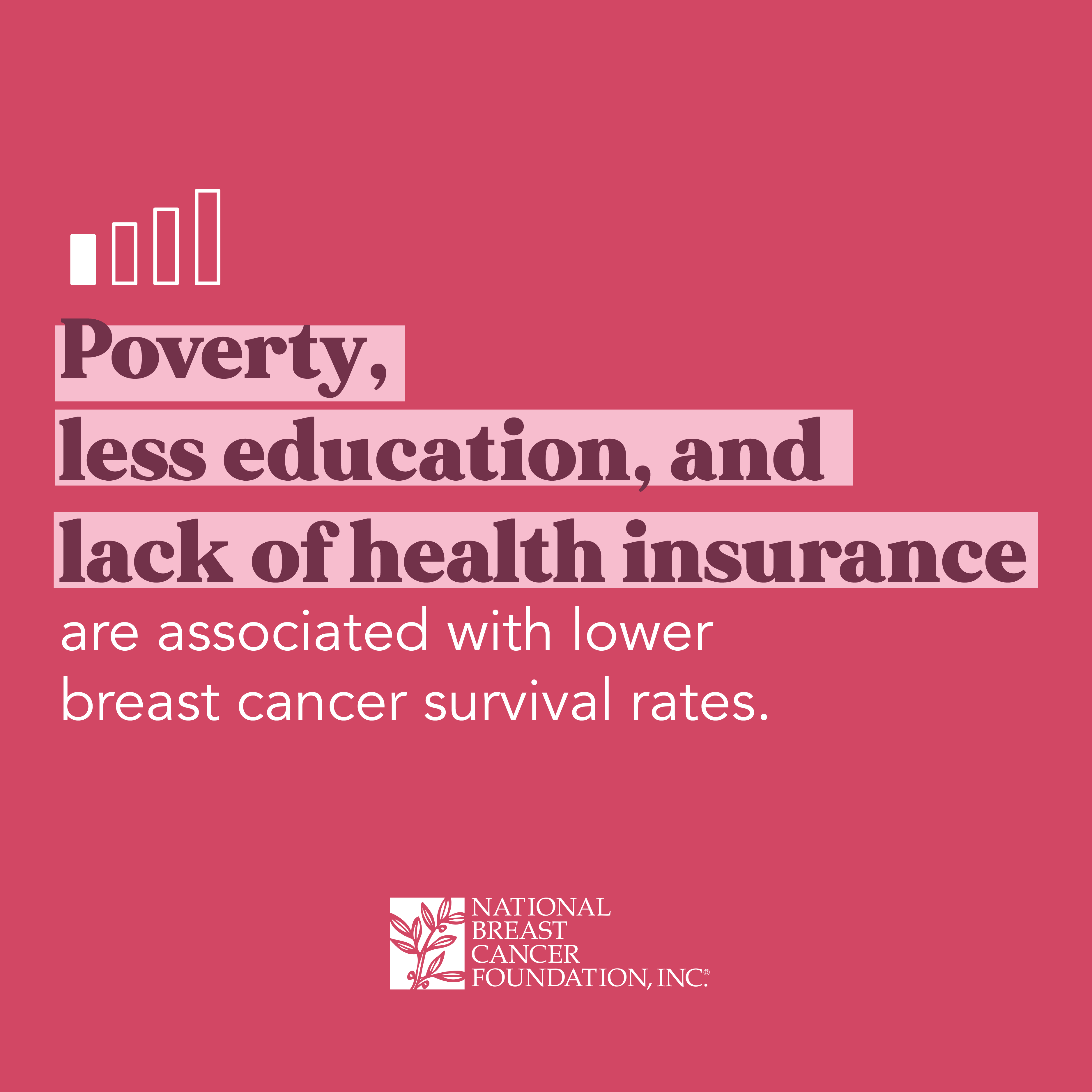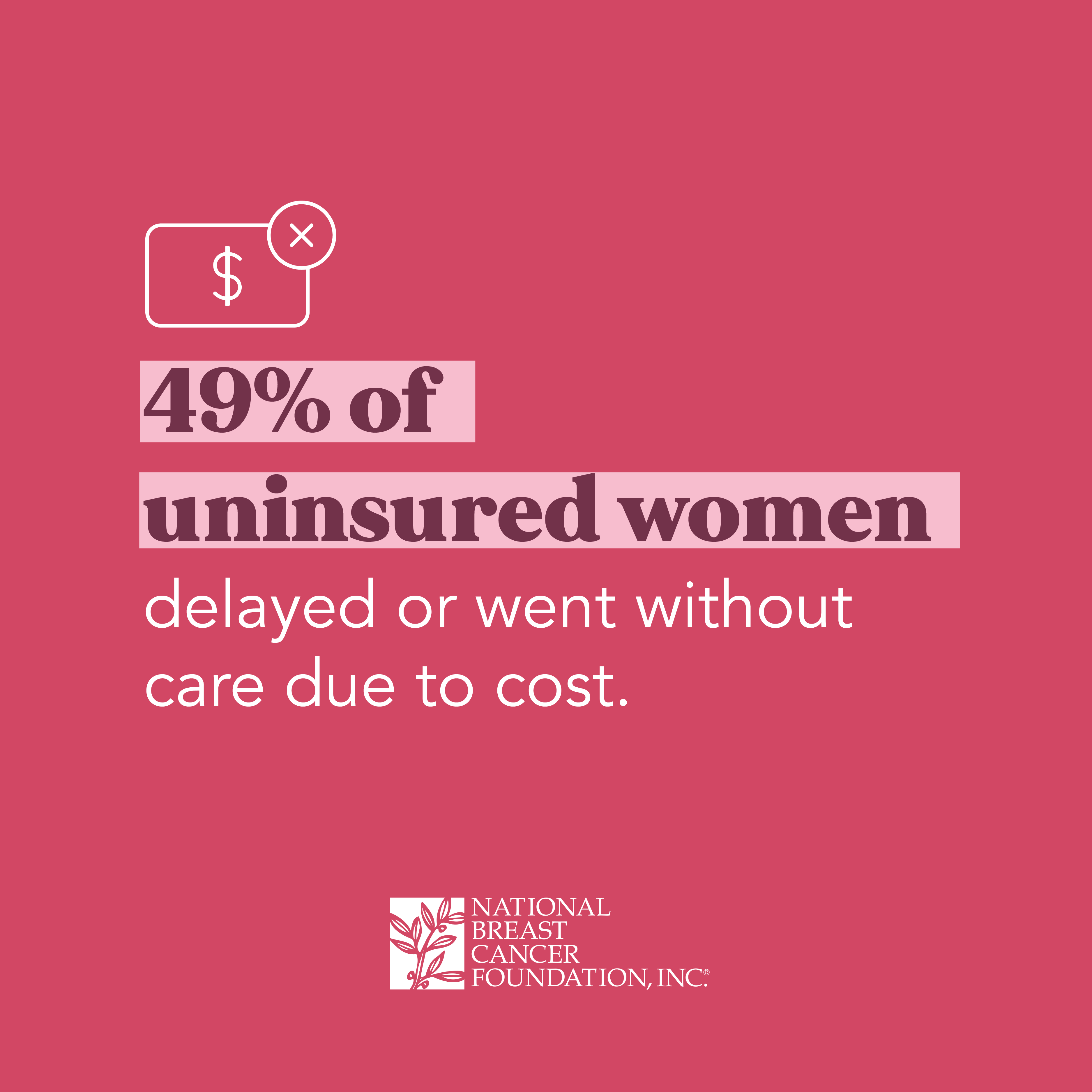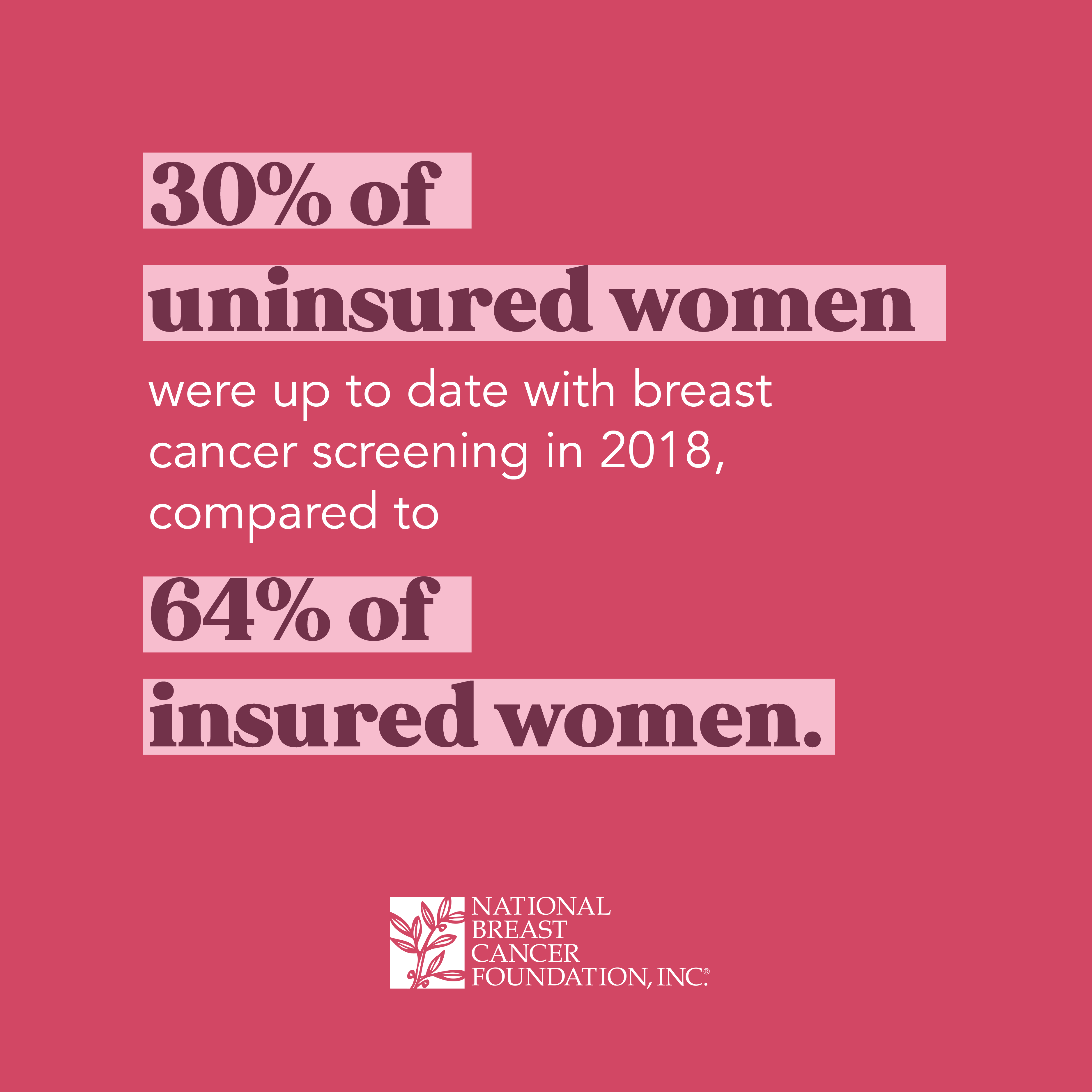Breast Cancer Facts & Stats
1 in 8 women in the United States will be diagnosed with breast cancer in her lifetime. In 2025, an estimated 316,950 women and 2,800 men will be diagnosed with invasive breast cancer, and an additional 59,080 new cases of non-invasive (in situ) breast cancer will be diagnosed. Chances are, you know at least one person who has been personally affected by breast cancer.
But there is hope. When caught in its earliest, localized stages, the 5-year relative survival rate is 99%. Advances in early detection and treatment methods have significantly increased breast cancer survival rates in recent years, and there are currently over 4 million breast cancer survivors in the United States.
Awareness of the facts and statistics surrounding breast cancer in the United States is key in empowering individuals to make informed decisions about their health.
Table of Contents
Facts & statistics
Incidence statistics
Statistics by age
Statistics by ethnicity
Survival & mortality statistics
Male breast cancer statistics
Facts & statistics images
What Is Breast Cancer?
Breast cancer is a disease in which malignant (cancer) cells form in the tissues of the breast. There are many different types of breast cancer that can affect both women and men.
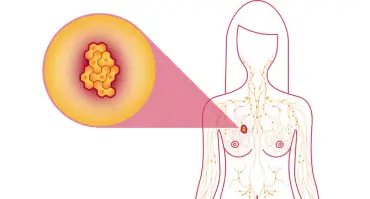
To determine the extent of an individual’s breast cancer and if it has spread outside of the breast, the cancer is assigned a stage upon diagnosis. The early detection of breast cancer through annual mammography and other breast exams is the best defense against receiving a late-stage breast cancer diagnosis. Generally speaking, the earlier the cancer is detected, the greater the likelihood of a successful outcome.
Key Statistics & Facts About Breast Cancer In The United States
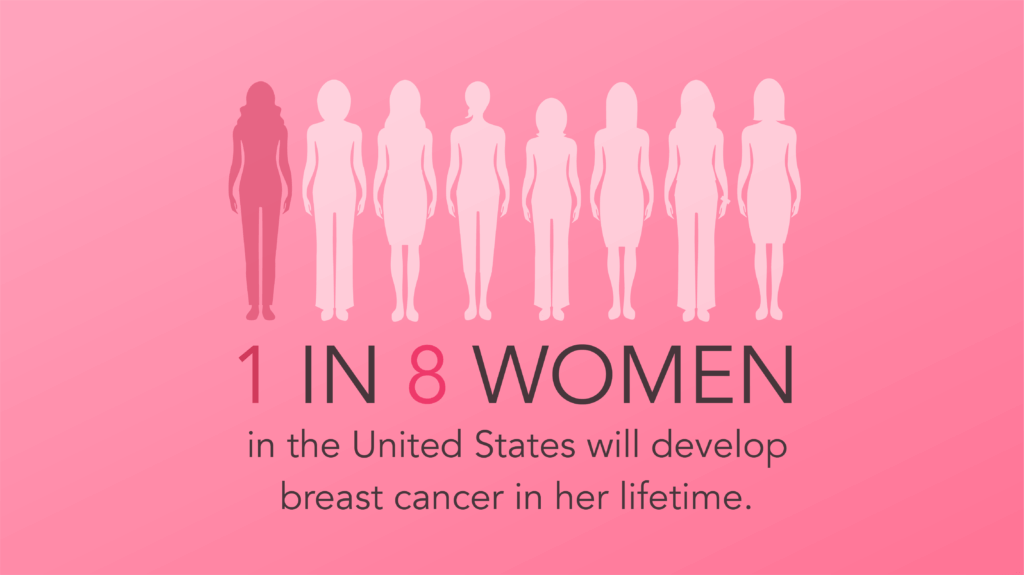
- In 2025, an estimated 316,950 new cases of invasive breast cancer will be diagnosed in women in the U.S., as well as 59,080 new cases of non-invasive (in situ) breast cancer.1
- There are currently over 4 million breast cancer survivors in the United States.1
- An estimated 42,170 U.S. women will die from breast cancer in 2025.1
- Risk of breast cancer recurrence depends on the type and staging of the initial breast cancer. Typically, the highest risk of recurrence is during the first few years after treatment and decreases over time.2
Breast cancer incidence in the United States
- 1 in 8 women, or approximately 13% of the female population in the U.S., will develop breast cancer in their lifetime.1
- Breast cancer is the most common cancer in American women, except for skin cancers.1
- It is estimated that in 2024, approximately 30% of all new female cancer diagnoses will be breast cancer.1
- On average, every 2 minutes a woman is diagnosed with breast cancer in the United States.1
- Approximately 66% of breast cancer cases are diagnosed at a localized stage, before cancer has spread outside of the breast, when it is easiest to treat.3
- The 5-year relative survival rate for cancer diagnosed at the localized stage is 99%.1
- Approximately 15% of women diagnosed have a family history of breast cancer. Those with a first-degree relative (mother, sister, daughter) with breast cancer are nearly twice as likely to develop breast cancer themselves.4
Breast cancer statistics by age
Though breast cancer in the United States occurs primarily in middle-aged and older women, age is not the only risk factor for a breast cancer diagnosis. Many risk factors beyond age may contribute to a breast cancer diagnosis, and sometimes there are no discernable risk factors at all.
- The average age of U.S. women diagnosed with breast cancer is 62 years old.1
- Half of U.S. women who develop breast cancer are 62 years of age or younger when they are diagnosed.1
- About 9% of all new breast cancer cases in the U.S. are diagnosed in women younger than 45 years old.5
- Younger people, particularly those under age 35 at the time of their original breast cancer diagnosis, face a higher risk of breast cancer recurrence.6
Breast cancer statistics by ethnicity
In the United States, breast cancer occurs within every racial and ethnic group. However, there are variations in statistics and outcomes across the different groups. Learn more about how NBCF is addressing disparities in breast cancer.
Black Women:
- The average age of Black women diagnosed with breast cancer is 60 years old, compared to an average age of 62 for white women.1
- Black women are 40% more likely to die from breast cancer than white women.1
- Black women have the lowest 5-year relative breast cancer survival rate of any racial or ethnic group.1
- 1 in 5 Black women with breast cancer are diagnosed with triple-negative breast cancer, which is harder to treat. This is higher than any other racial or ethnic group.1
Hispanic Women:
- Overall, Hispanic women have a 20% lower incidence rate of breast cancer than other groups.7
- Hispanic women are more likely than white women to be diagnosed with breast cancer at later stages when it is more difficult to treat.1
- Breast cancer is the leading cause of cancer death for Hispanic women.1
Asian, Pacific Islander, American Indian, and Alaska Native Women:
- Asian and Pacific Islander women are more likely to be diagnosed with localized (earlier stage, more treatable) breast cancer than other groups.1
- Asian and Pacific Islander women have the lowest death rate from breast cancer.1
- American Indian and Alaska Native women have the lowest incidence rate of developing breast cancer.1
- Chinese and Japanese women have the highest breast cancer survival rates.7
Breast cancer survival & mortality statistics
Breast cancer survival rates are calculated using different forms of data, including the type and staging of breast cancer at diagnosis. These rates give an idea of what percentage of people with the same type and stage of cancer are still alive after a certain time period—usually 5 years—after they were diagnosed. This is called the 5-year relative survival rate.
- The 5-year relative survival rate in the U.S. for all types and stages of breast cancer combined is 91%.1
- The 5-year relative survival rate in the U.S. of localized (early stage) breast cancer is 99%.1
Breast Cancer (SEER*) Stage | 5-Year Relative Survival Rate |
Localized** (invasive cancer has not spread outside of the breast) | 99% |
Regional (cancer has spread outside of the breast to nearby structures or lymph nodes) | 87% |
Distant (cancer has spread to other parts of the body, such as lungs, liver, or bones) | 32% |
All SEER stages combined | 91% |
**Localized stage only includes invasive cancer. It does not include ductal carcinoma in situ (DCIS).
Chart source: American Cancer Society
- Breast cancer is the second leading cause of cancer death in U.S. women, behind lung cancer. The chance that a woman will die from breast cancer is 1 in 39, or about 2.5%.1
- In 2025, an estimated 42,170 women will die from breast cancer in the U.S.1
- Breast cancer death rates have slowly decreased over time, for an overall decline of 44% since 1989. This is in part due to better screening and early detection efforts, increased awareness, and continually improving treatment options.1
- Women who receive regular screenings for breast cancer have a 26% lower breast cancer death rate than women who do not receive screenings.5
Breast cancer in men statistics
All people are born with some breast cells and tissue, including men. Although rare, men get breast cancer too.
- In 2025, an estimated 2,800 men will be diagnosed with invasive breast cancer in the United States.1
- An estimated 510 U.S. men will die from breast cancer in 2025.1
- The lifetime risk of a U.S. man developing breast cancer is about 1 in 726.1
- Black men with breast cancer tend to have a worse prognosis, or outlook, than white men with breast cancer.1
Awareness is the first step in making informed choices about breast health. Donate now to help NBCF support more women and men facing breast cancer in communities throughout the United States.
Share These Facts & Stats and Support Breast Cancer Awareness
Click on each image to download
Breast Cancer Disparities
Click on each image to download
Sources:
1 American Cancer Society (cancer.org)
2 Johns Hopkins (hopkinsmedicine.org)
3 National Cancer Institute (cancer.gov)
4 BreastCancer.org (breastcancer.org)
5 Centers for Disease Control & Prevention (cdc.gov)
6 Mayo Clinic (mayoclinic.org)
7 National Institutes of Health (nih.gov)




